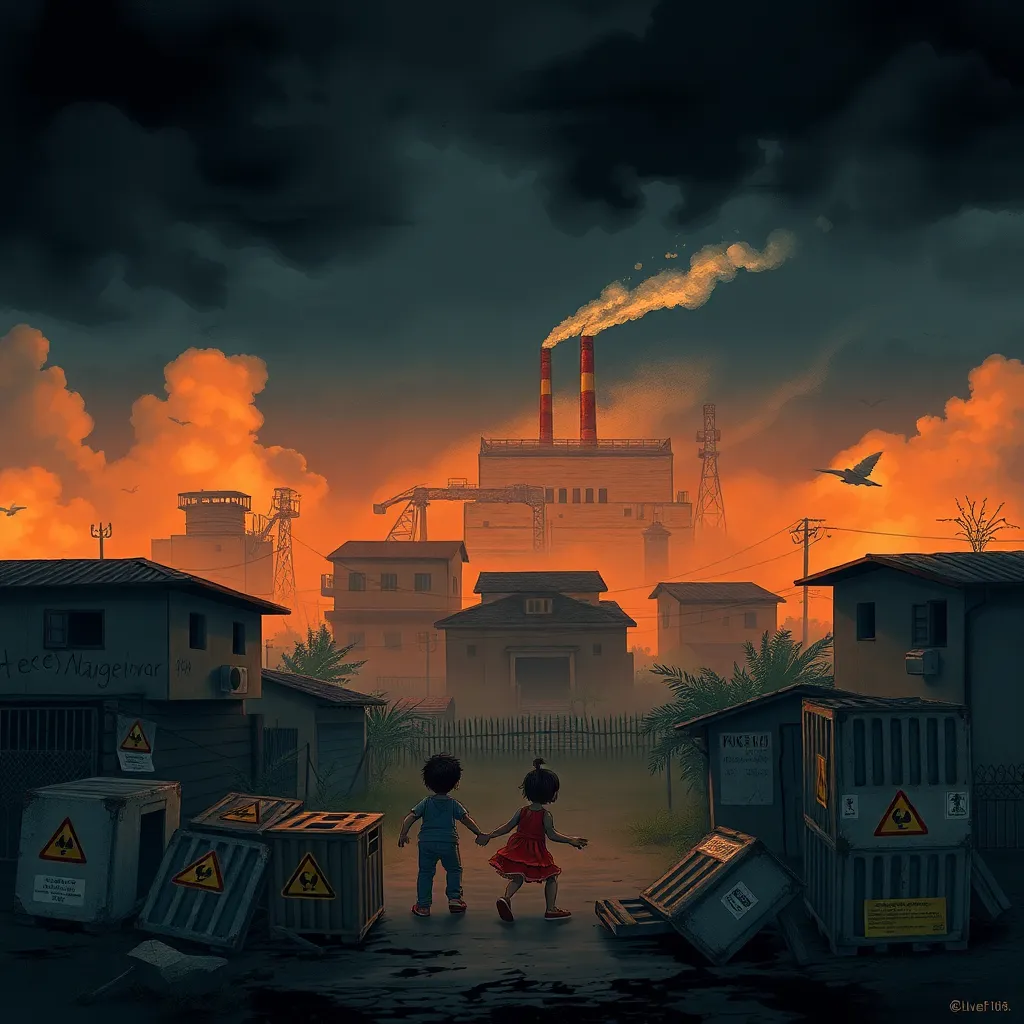
A recent investigation by The Guardian and Quinto Elemento Lab has uncovered a shocking truth about the disposal of hazardous waste from the United States. The report reveals that large quantities of toxic waste are being sent to Mexico, where they are processed in factories with lax regulations, resulting in a “toxic cocktail” of pollution that is devastating local communities.
At the heart of this scandal is a factory located in a small town in Mexico, where US companies are sending their hazardous waste to be processed. The investigation found that homes near the factory have extremely high levels of lead and arsenic, posing a significant threat to the health and well-being of residents.
This is not just an environmental issue; it is also a matter of social justice. The communities affected by this pollution are often poor and marginalized, with limited access to healthcare and other resources. They are being forced to bear the brunt of the toxic waste, while the companies responsible for generating it reap the benefits of cheap disposal.
The investigation highlights the dark side of globalization, where companies prioritize profits over people and the environment. The lack of effective regulations and oversight allows companies to exploit loopholes and export their waste to countries with weaker environmental laws.
This is not a new problem, but it is one that has been exacerbated by the increasing globalization of trade. As the world becomes more interconnected, the opportunities for companies to export their waste to countries with lax regulations have increased.
So, what can be done to address this issue? Firstly, there needs to be greater transparency and accountability in the disposal of hazardous waste. Companies must be held responsible for the waste they generate, and governments must ensure that regulations are in place to prevent the export of toxic waste to countries that cannot handle it safely.
Secondly, there needs to be a greater emphasis on reducing waste and promoting sustainable practices. Companies must be encouraged to adopt environmentally-friendly practices and reduce their reliance on toxic materials.
Finally, governments and international organizations must work together to develop global standards for the disposal of hazardous waste. This includes providing support and resources to countries that are struggling to manage their waste, and holding companies accountable for their actions.
The investigation by The Guardian and Quinto Elemento Lab is a wake-up call for governments, companies, and individuals around the world. It highlights the need for urgent action to address the problem of hazardous waste and ensure that the benefits of globalization are shared by all, not just a privileged few.





